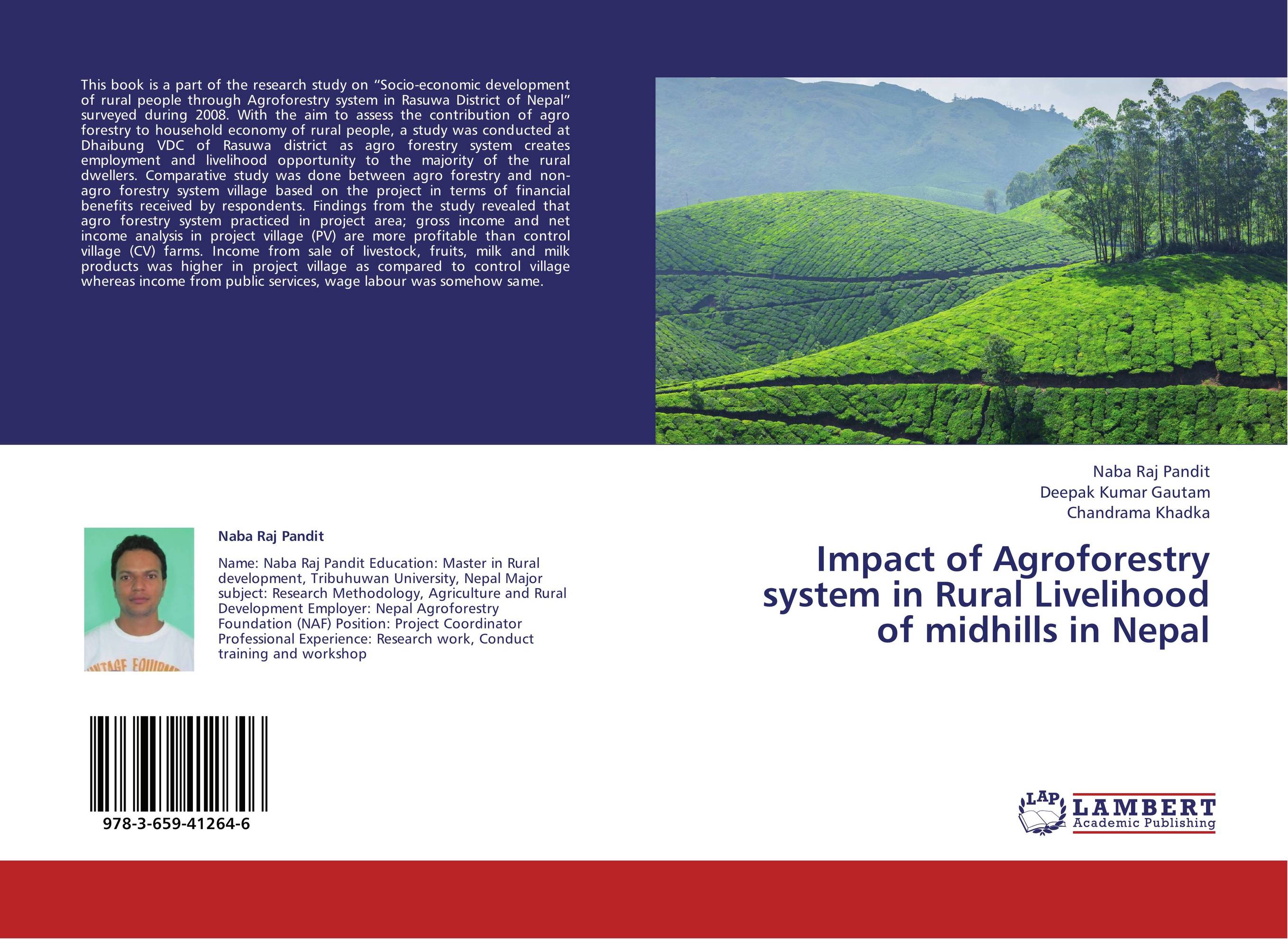| Поиск по каталогу |
|
(строгое соответствие)
|
- Профессиональная
- Научно-популярная
- Художественная
- Публицистика
- Детская
- Искусство
- Хобби, семья, дом
- Спорт
- Путеводители
- Блокноты, тетради, открытки
Impact of Agroforestry system in Rural Livelihood of midhills in Nepal.

В наличии
| Местонахождение: Алматы | Состояние экземпляра: новый |

Бумажная
версия
версия
Автор: Naba Raj Pandit,Deepak Kumar Gautam and Chandrama Khadka
ISBN: 9783659412646
Год издания: 2013
Формат книги: 60×90/16 (145×215 мм)
Количество страниц: 92
Издательство: LAP LAMBERT Academic Publishing
Цена: 34044 тг
Положить в корзину
Позиции в рубрикаторе
Отрасли экономики:Код товара: 123345
| Способы доставки в город Алматы * комплектация (срок до отгрузки) не более 2 рабочих дней |
| Самовывоз из города Алматы (пункты самовывоза партнёра CDEK) |
| Курьерская доставка CDEK из города Москва |
| Доставка Почтой России из города Москва |
Аннотация: This book is a part of the research study on “Socio-economic development of rural people through Agroforestry system in Rasuwa District of Nepal” surveyed during 2008. With the aim to assess the contribution of agro forestry to household economy of rural people, a study was conducted at Dhaibung VDC of Rasuwa district as agro forestry system creates employment and livelihood opportunity to the majority of the rural dwellers. Comparative study was done between agro forestry and non-agro forestry system village based on the project in terms of financial benefits received by respondents. Findings from the study revealed that agro forestry system practiced in project area; gross income and net income analysis in project village (PV) are more profitable than control village (CV) farms. Income from sale of livestock, fruits, milk and milk products was higher in project village as compared to control village whereas income from public services, wage labour was somehow same.
Ключевые слова: Nepal, Livestock, livelihood, Agroforestry, lowland, fodder, upland, Rasuwa



